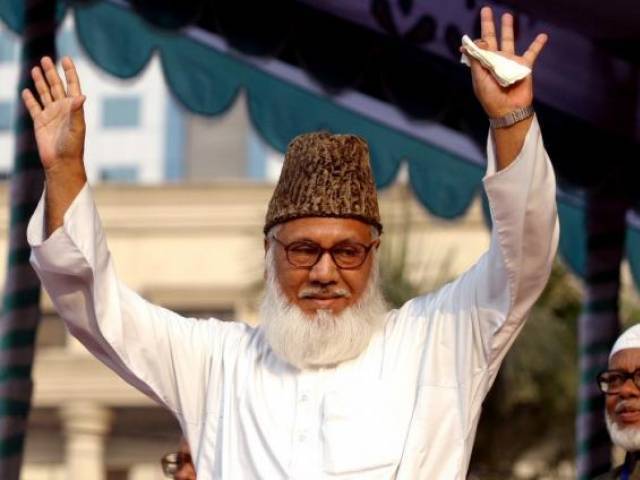
“The acting high commissioner of Bangladesh was summoned to the Ministry of Foreign Affairs by the director general (South Asia and SAARC) and a strong protest was lodged at the unfortunate hanging of Mr Motiur Rahman Nizami over alleged crimes committed before December 1971 through a flawed judicial process,” said a statement issued by the Foreign Office on Thursday.
Bangladesh, too, handed a protest note to the Pakistani ambassador in Dhaka in response to the condemnation Islamabad handed Dhaka over the execution of Motiur Rahman Nizami, the Daily Star reported.
Nizami was hanged on Tuesday after a controversial war crimes tribunal convicted him on charges of committing genocide, rape and orchestrating the massacre of top intellectuals during the 1971 war. However, the Foreign Office insisted that his only ‘sin’ was that he upheld the laws of Pakistan.
“The attempts by the government of Bangladesh to malign Pakistan, despite our keen desire to develop brotherly relations with it, are regrettable,” the statement said. It recalled that the 1974 Tripartite Agreement was the cornerstone of relations between the two countries.
“It needs to be emphasised that, as part of the agreement, the government of Bangladesh decided not to proceed with the trials as an act of clemency.”
At the same time, Pakistan reiterated its desire for friendly relations with Bangladesh.
Speaking at a weekly news briefing, Foreign Office spokesperson Nafees Zakaria rejected Bangladesh’s allegations that Pakistan was interfering in its internal matters by condemning the execution of opposition leaders.
“It is not a matter of interference. The flawed trials pertain to the events before December 1971 and these gentlemen are being implicated for upholding the laws of Pakistan,” Nafees emphasised.
“You may have seen the concerns raised by human rights organisations on the flawed trials and the death penalties handed down,” he added.
On the reported arrest of a Pakistani principal of The City School in Dhaka, the spokesperson clarified that she was under ‘protective custody’ in view of the law and order situation created due to misunderstanding between the school administration and parents of students.
Earlier reports claimed that the Pakistani principal was illegal detained by local police in Dhaka and her passport was also confiscated. Nafees said the Pakistani high commissioner was in contact with the Bangladeshi authorities to resolve the matter.
Published in The Express Tribune, May 13th, 2016.







1732355030-0/BeFunk_§_]__-(41)1732355030-0.jpg)
1732340798-0/BeFunk_§_]__-(35)1732340798-0.jpg)
1728020241-0/Express-Tribune-Web-(12)1728020241-0-270x192.webp)







COMMENTS
Comments are moderated and generally will be posted if they are on-topic and not abusive.
For more information, please see our Comments FAQ